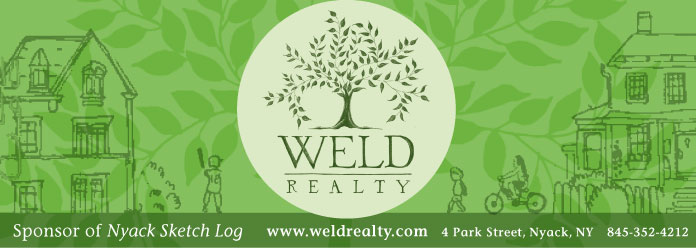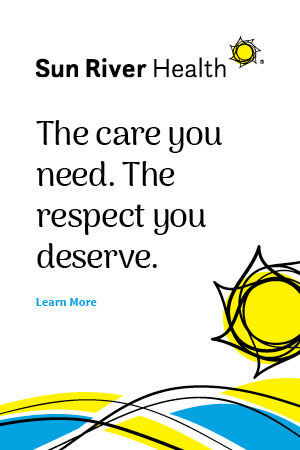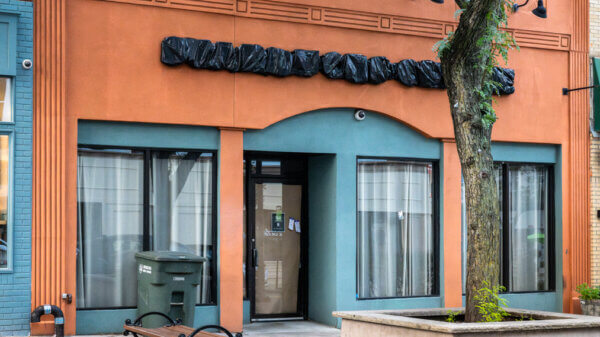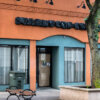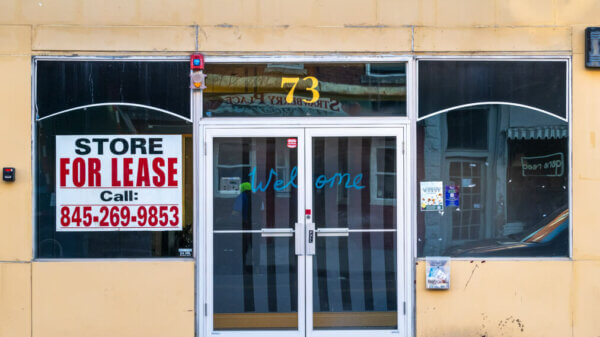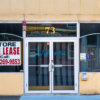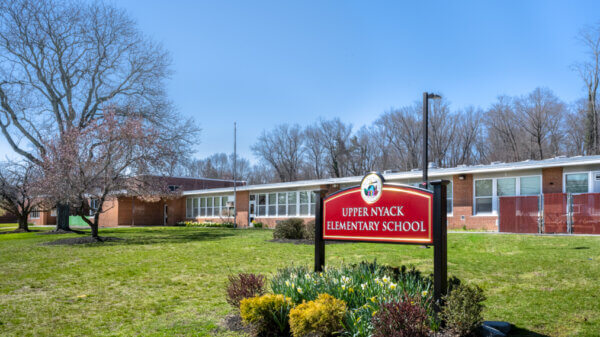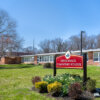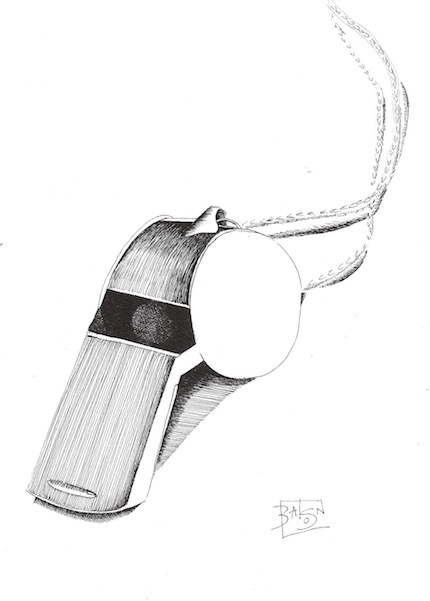 by Bill Batson
by Bill Batson
The low-tech, durable whistle is still saving lives after centuries of service. Whistles were used by early police forces to disrupt crimes in progress. Women have been advised to use a whistle to loudly protest unwanted advances. This ancient instrument for raising an alarm is also an apt symbol for Jacqueline Cassagnol’s common sense approach to saving lives.
Cassagnol’s organization, Worldwide Community First Responders, distributes whistles, along with other medical supplies and basic necessities so that disaster victims can shelter in place and direct first responders to their locations under rubble or debris. The disaster preparedness training and supplies that WCFR distributes in vulnerable communities around the world, delivered before natural disasters strike, are intended to reduce the loss of life.
 Nyack Sketch Log spoke with Cassagnol to learn more about WCFR, who are having their eighth annual fundraiser on October 5th at the Time Nyack Hotel.
Nyack Sketch Log spoke with Cassagnol to learn more about WCFR, who are having their eighth annual fundraiser on October 5th at the Time Nyack Hotel.
What is WCFR?
Worldwide Community First Responder is a 501(c)(3) non-profit/charitable organization. Our a mission is to prevent deaths worldwide through education and training. We offer two main services, health education and training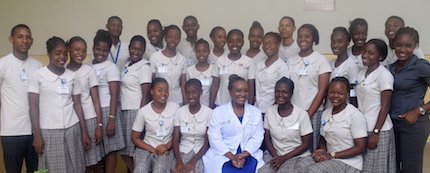 . WCFR health education focuses on educating community members worldwide of fatal health conditions and preventative measures. WCFR’s training program is dedicated to providing worldwide community-based first response and first aid training.
. WCFR health education focuses on educating community members worldwide of fatal health conditions and preventative measures. WCFR’s training program is dedicated to providing worldwide community-based first response and first aid training.
“Teaching People – Saving Lives”
Here is an example of some of the information Worldwide Community First Responders (WCFR) distributes in Hurricane prone regions like Haiti. Cassagnol’s efforts were inspired by a comment made to her during a training session that she was giving after the devastating 2010 Earthquake in Haiti, “If we knew what you are teaching us right now, fewer people would have died during the earthquake.”
Be Hurricane Prepared!
Preparing for a hurricane takes time and effort, but it will be worth it if a hurricane should threaten to strike your area. Share these tips to help friends and family prepare during hurricane season.
Before a hurricane
- Assess your risks and know your home’s vulnerability to storm surge, flooding and wind.
- Follow official instructions; shelter in place or evacuate.
- Make a plan to communicate with family and find each other in an emergency.
- Build supplies kit needed when you shelter in place or evacuate.
During a hurricane
- Stay away from windows, in the middle room or closet of the house and under a heavy piece of furniture.
- Stay informed; Listen to the radio or TV for information.
- Turn off propane tanks, and utilities if instructed to do so.
- Otherwise, turn the refrigerator thermostat to its coldest setting and keep its doors closed.
- Avoid using the phone, except for serious emergencies.
- Fill the bathtub and other larger containers with water.
After a hurricane
- Wait until area is declared safe before returning home.
- Keep away from loose or dangling power lines.
- Use good basic personal hygiene and hand washing.
- Make water safer for drinking: distill it; strain it; boil it; chlorinate it.
- Do not eat any food that may have come in contact with flood water.
- Drive only if necessary and avoid flooded roads and washed out bridges.
- Remember that recovering from a disaster is usually a gradual process.
We provide our services worldwide to all communities regardless of gender, age, race, religion, sexual orientation, ability, economic and social class. WCFR members are a diverse group of volunteers who provide their services free of charge. Through their efforts, WCFR members seek to empower individuals in their own communities and save lives.
Describe the moment you realized that the world needed Worldwide Community First Responder, Inc?
It all started after the 2010 earthquake when I was teaching first aid in Grand Goave, Haiti and a student stated ‘If we knew what you are teaching us right now, fewer people would have died during the earthquake.’
This statement touched me so deeply that I broke down in front of the classroom. I knew then that I had to continue doing this type of work.
When did you become a health care professional?
I became a nurse twenty years ago. Ever since I can remember, I wanted to be a nurse.
I started as Licensed Practical Nurse, then went on to get my Associate of Science Degree in Nursing, then Bachelor of Science Degree, then Master of Science Degree, and then Post Master Certificate in Nursing Education. I am currently pursuing a PhD in Nursing Degree at Pace University.
What is your specialty?
My specialty is community health nursing. I have taught community health nursing in the United States and Haiti for about eight years. I always look forward to teaching and promoting volunteer work in my community health nursing courses. Leveraging nurses’ interest in volunteer work could improve the way nurses engage with their communities, expand the role of nurses as public health professionals, and foster the social desirability of healthful living.
What are some of the worst disasters that you have responded to?
The last disaster that I responded to was Hurricane Matthew in Haiti. More than 1,000 people died when Hurricane Matthew slammed into the island on Oct. 4. Although, WCFR is dedicated to providing its services before disasters happen, we sometimes participate in relief efforts to communities locally and abroad.
 What are some of the issues that first responders are most concerned about in this day and age?
What are some of the issues that first responders are most concerned about in this day and age?
We believe that everyone should be a first responder. Everyone should know basic first aid in order to save lives. Since we train many community members in hands-only CPR, there are some concerns about hurting a person while doing chest compressions. We always tell them that they are covered under the Good Samaritan Law.
 How many individuals have taken your heath education and first aid and first response classes?
How many individuals have taken your heath education and first aid and first response classes?
We have trained and educated over 350,000 people worldwide.
In what communities?
Our focus is the United States and Haiti, but we have been to Ireland, South Africa, and China.
 Is Haiti ready for another natural disaster?
Is Haiti ready for another natural disaster?
Haiti is not ready for another disaster, but we are doing as much as we can to train community members how to prepare for the next one.
What is next for WCFR?
We are growing and need more help than ever to meet our mission “to prevent deaths worldwide through education and training.” Our goal is to train and educate a total of 400,000 community members in 2020. One way to help is to attend our upcoming gala on October 5th, 2019.
If you would like to learn more about how to support the work of WCFR as a volunteer and sponsor, visit wcfrworldwide.org
The eighth annual WCFR fundraiser will be held on Saturday, October 5 at 6p at Time Nyack Hotel. For tickets click here.
An activist, artist and writer, Bill Batson lives in Nyack, NY. Nyack Sketch Log: “Worldwide Community First Responders“© 2019 Bill Batson. Visit billbatsonarts.com to see more.

